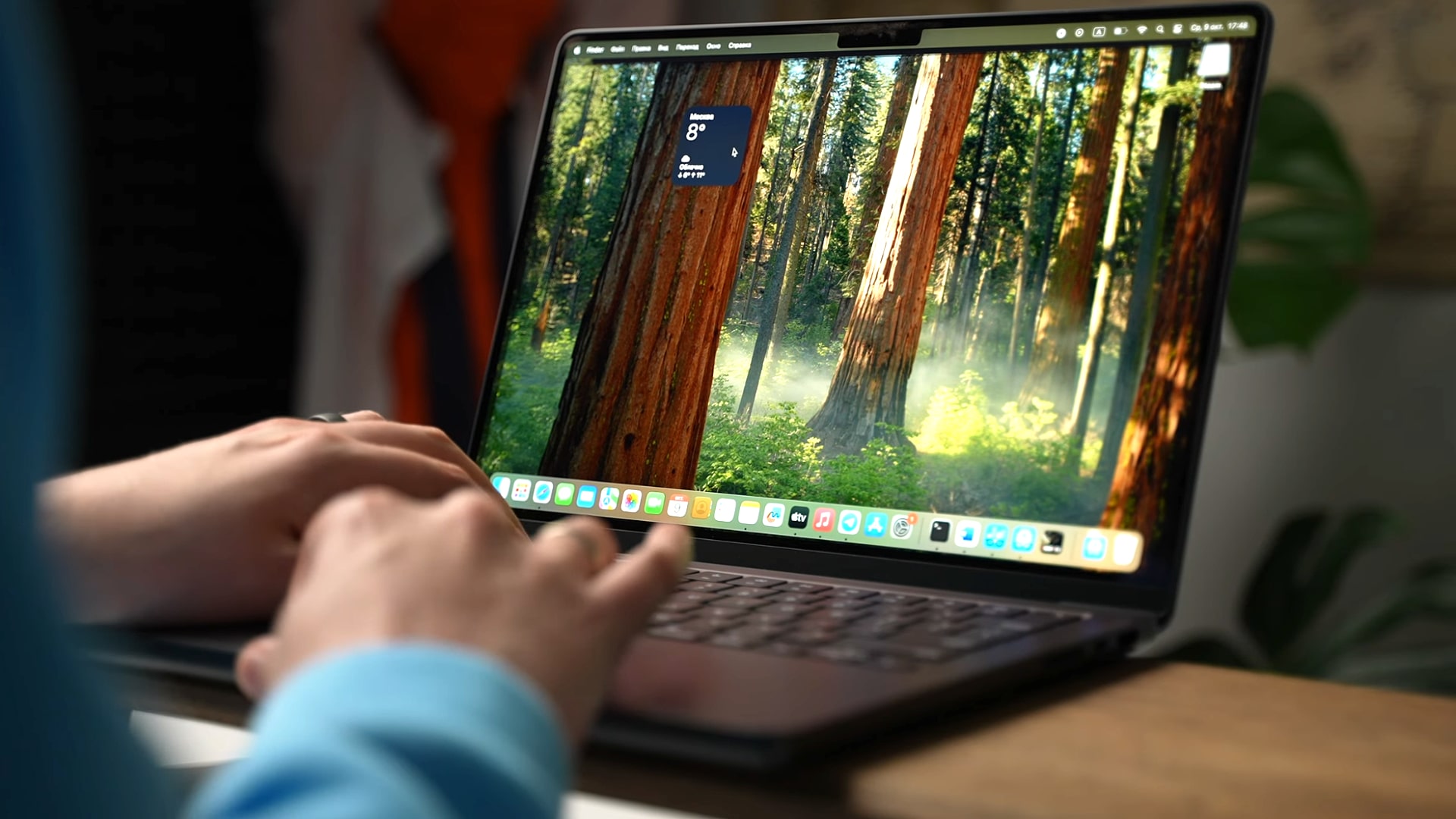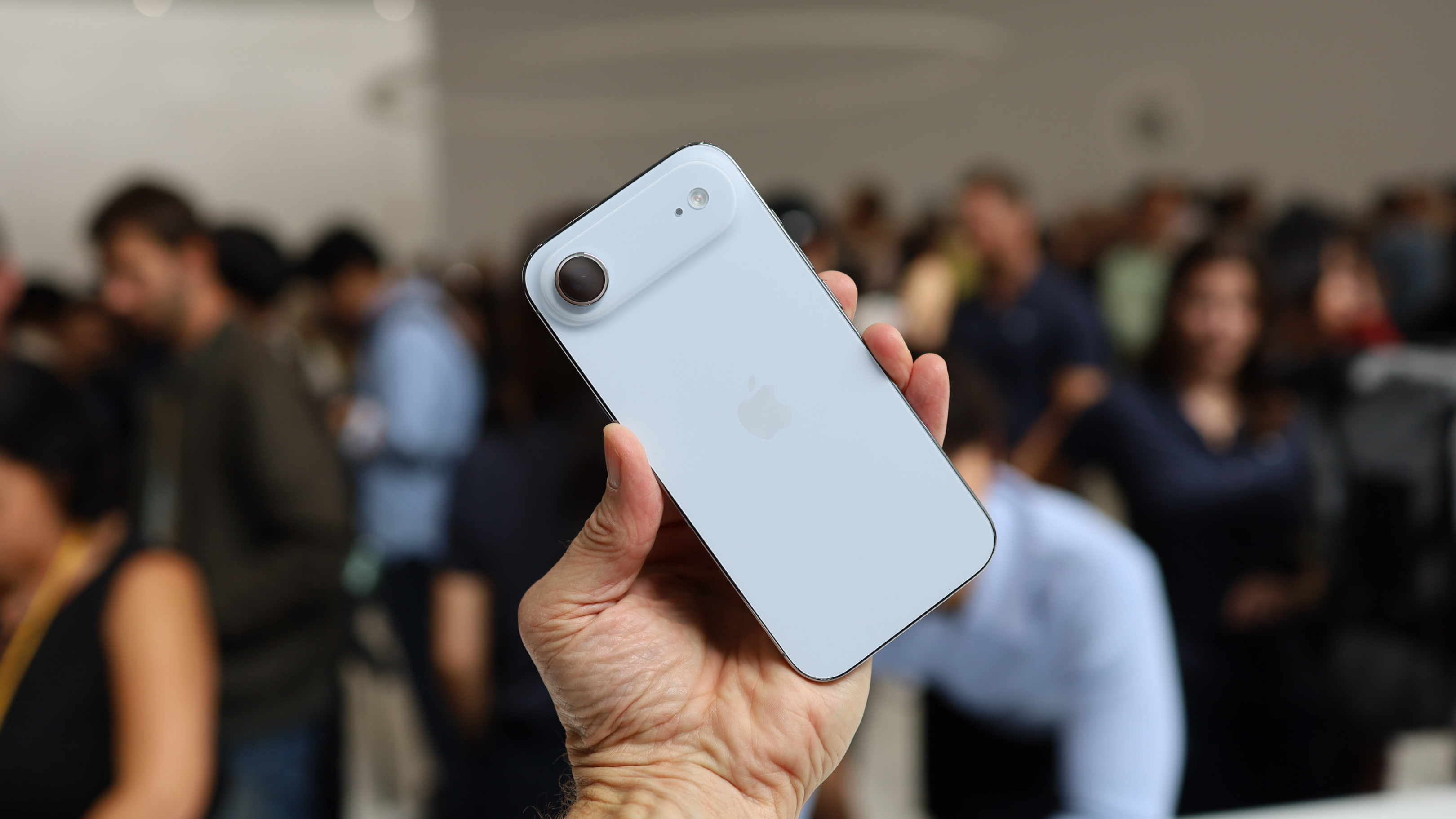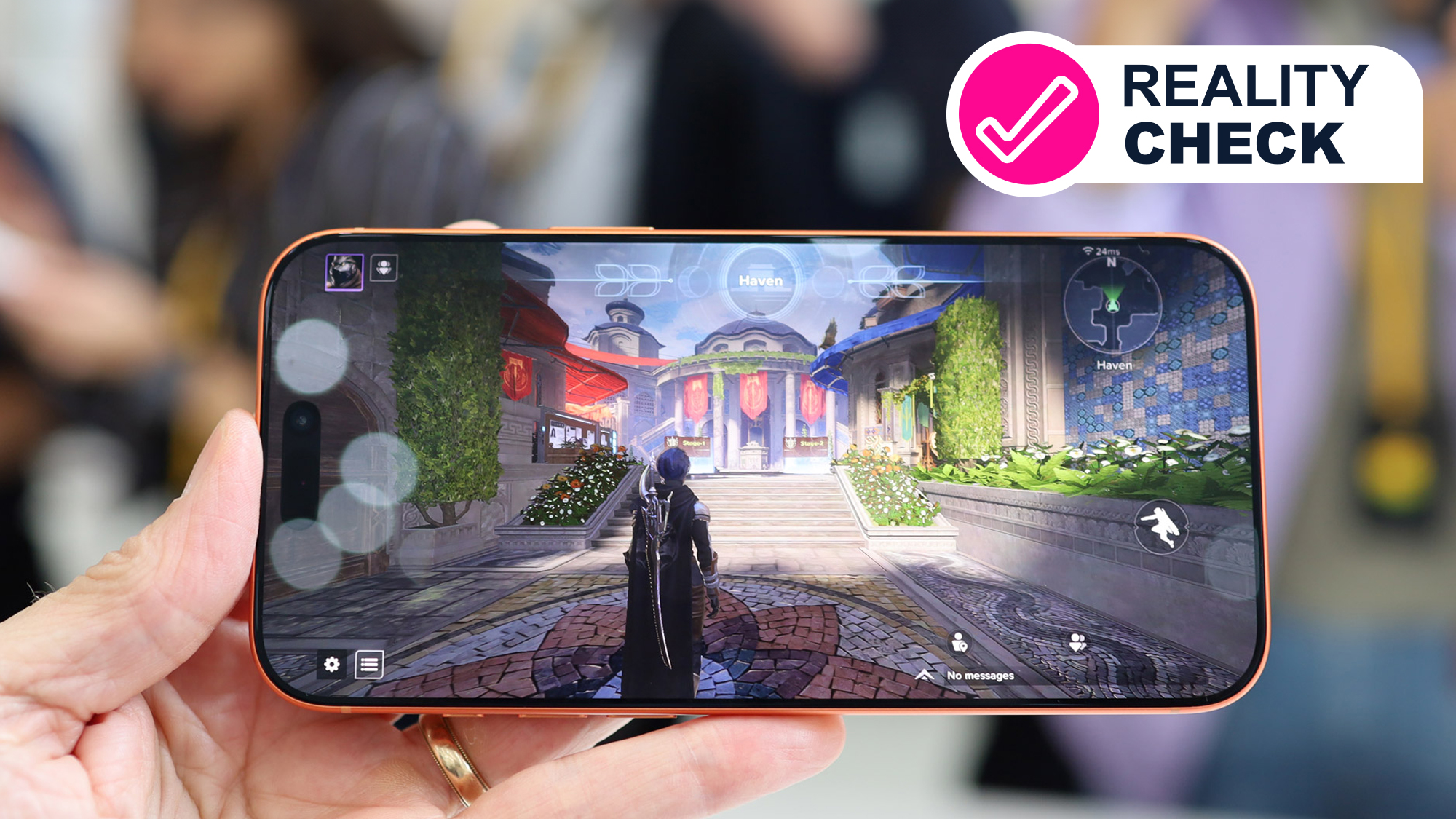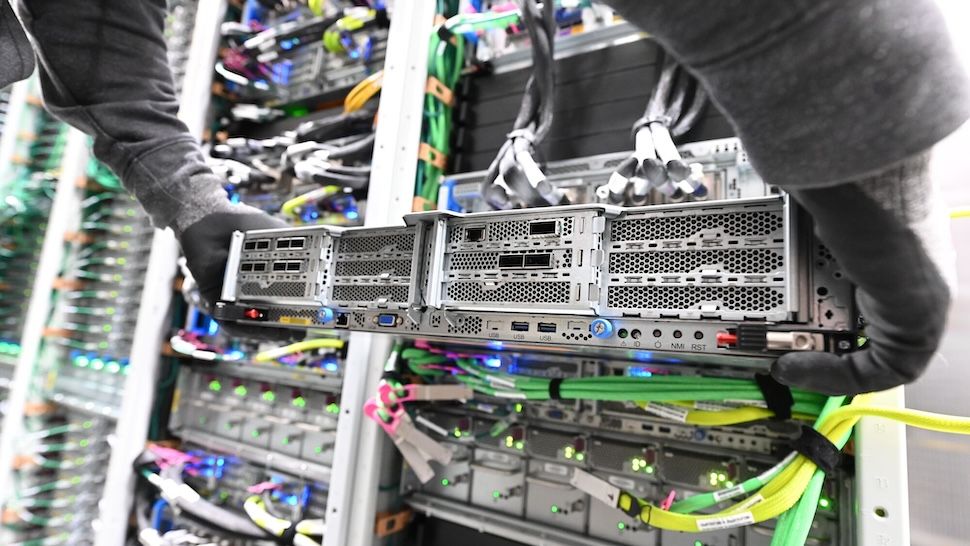Can an iPhone offer the same levels of performance as a MacBook Pro? Most people would scoff at that claim, but Apple has just said that it’s true. Not only that, but the company seems to be absolutely serious about the idea.
No, Apple hasn’t gone crazy – it’s all to do with the A19 Pro chip that was unveiled at the firm’s ‘Awe Dropping’ event yesterday. It’s a huge statement to make, but is it actually true?
Let’s see what Apple said. At the Awe Dropping show, the company put forward the idea that the iPhone Air could offer “MacBook Pro levels of compute.” It came during a section presented by Tim Millet, Apple’s VP of Platform Architecture, who decided to hype the A19 Pro chip with that bombshell assertion.
Apple says its A19 Pro chip – which is in the iPhone Air, iPhone 17 Pro and iPhone 17 Pro Max – can offer MacBook Pro-type performance thanks to the Neural Accelerators that are built into each of the A19 Pro chip’s GPU cores.
The claim: The A19 Pro offers MacBook Pro-level performance

These neural accelerators inside the A19 Pro offer three times the peak compute of the previous A18 Pro chip, Millet claimed. This, Apple says, is what you’d expect from a MacBook Pro, not an iPhone.
What’s particularly striking is that Millet made this assertion during the iPhone Air segment of Apple’s event. This is an extremely thin and light device that you might not link with high-end output. We normally associate slimmed-down devices like this with performance sacrifices, not gains.
The iPhone Air also has what looks to be a slightly reduced, 'binned' A19 Pro chip that comes with a five-core GPU compared to the iPhone 17 Pro’s six-core GPU. The potential implication here is that these six-core models might even be able to exceed the MacBook Pro’s performance.
That all sounds phenomenal, but is it true? We can’t know for sure until we get hands-on with the latest iPhones. It’s worth noting, however, that Apple didn’t say which MacBook Pro it was comparing the iPhone Air to.
The reality: There are too many nuances and unknowns

While I don’t expect Apple is benchmarking the iPhone Air against an old-school Intel-based MacBook Pro, I also seriously doubt it’s putting it up against one equipped with Apple’s most powerful M4 Max chip. That unknown element casts a shadow over Apple’s claim, at least until it’s cleared up.
Of course, there’s also more to high-end performance than raw compute. There’s the user experience to consider too, and here, I’d want a MacBook Pro every time.
Millet’s claim came in the context of Apple’s efforts in artificial intelligence (AI), and he was specifically referring to the A19 Pro’s ability to compete with the MacBook Pro in AI-related tasks. That can span the breadth of user undertakings, from generating simple pictures in the Image Playground app to running large language models (LLMS) locally on your machine. I would be really impressed to see an iPhone Air train the kinds of LLM that a MacBook Pro can chew through.
What about other tasks? There, the picture is murkier, and we don’t know how the performance offered by the Neural Accelerators translates to non-AI workloads. Still, if they get the iPhone Air and iPhone 17 Pro series anywhere near the MacBook Pro, there are a few things worth considering.
For one thing, I doubt there are many people who would opt for an iPhone over a MacBook when it comes to photo or video editing. The display is just too small and fiddly for the precise adjustments needed in this kind of work, while the Mac also has a larger range of accessories dedicated to these tasks. So sure, even if it’s true that the iPhone Air can match the MacBook Pro for performance, the MacBook Pro will be the better place to get this kind of work done.
Then there’s gaming. Here, the heightened levels of performance make more sense. Mobile gaming is a huge industry, after all, with reams of demanding titles and legions of players. Perhaps there you could see laptop performance in an iPhone, wrapped up in a form factor that is suited to the task at hand.
Going hands-on

On the face of it, Apple’s claim that a device as thin and light as the iPhone Air can go toe-to-toe with a MacBook Pro in certain demanding tasks is a bold one. And there’s much more that goes into this idea than just the unrefined performance figures – perhaps the iPhone Air can line up with the MacBook Pro in some ways, but would you actually want to use it instead of a laptop?
Maybe, maybe not. Ultimately, we won’t know how true Apple’s claim is until the iPhone Air and iPhone 17 range launch later in September and we get to go hands-on with them. But the fact that Apple has made this claim in the first place suggests it’s bullish about the capabilities of its A19 Pro chip. If its assertions hold up, Apple fans could soon have some incredibly beefy devices on their hands.










 English (US) ·
English (US) ·